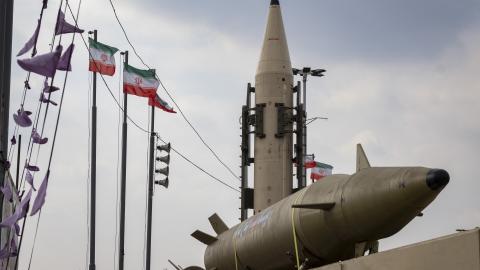Before approving Iraq's new interim constitution, Coalition Provisional Authority head Paul Bremer should insist that Iraq's Governing Council define the "tenets of Islam" that the council's March 1 draft states are to be used as a standard for legislation.
Described as an eleventh-hour "compromise" after some council members demanded a state based on Islamic sharia law, the provision stipulates that no law may contradict "the universally agreed upon tenets of Islam."
The proposed constitution does not indicate what those tenets are, or any source where they may be found. This vague formulation risks empowering unelected religious authorities to override basic rights in determining what is "Islamically correct." It could also lead to further sectarian violence in a struggle over interpretation.
As demonstrated by devastating bombing attacks of sacred Shiite sites in Baghdad and Karbala on March 2, Iraq's post-Hussein period has been wracked by Muslim-on-Muslim strife, between Sunnis and Shiites, and between some rival Shiite factions.
This is not a "compromise," but a killer amendment. It will likely be the Trojan Horse that betrays the historic bill-of-rights provisions and democratic structures set out elsewhere in the constitution.
This provision endangers other sections of the proposed constitution by raising the possibility that an unanticipated power structure will determine the unspecified Islamic principles to which all legislation must be held accountable. It leaves open the prospect that unelected clerics will hold veto power over the legislature, as in Iran, or that judges will strike down extensive portions of statutory law because it does not conform to their notions of Islam, as happened in Pakistan.
In several Islamic countries, basic women's rights to equality, and rights to freedom of religion and expression, in particular, are denied and reforms are thwarted by applications of extreme Islamic law. The examples of two of Iraq's neighbors, Saudi Arabia and Iran, demonstrate that for democracy to take root, Islam must be enshrined in a way that is compatible with constitutionally provided democratic mechanisms.
In order to further President Bush's policy of democratizing Iraq, it is crucial that this provision be deleted or clarified before Ambassador Bremer signs the proposed constitution into law. This last-minute provision defers the central defining question about Iraq's future: whether it's to be a democracy with a bill of rights or an Islamist state. We have a great national interest in ensuring that the former path is taken and there must be clarification now, before it is too late.














